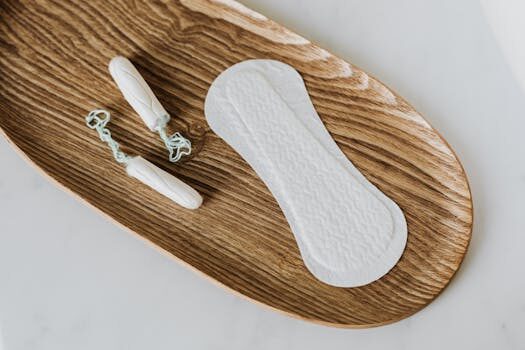When will I get my first period after birth?

After giving birth, many new mothers have questions about their bodies and the changes they are experiencing. One of the most common inquiries is, when will I get my first period after birth? Understanding the timeline for menstruation can help ease concerns and provide clarity during this significant transition.
This article will explore various aspects of the postpartum experience, including the return of menstruation, the differences between lochia and menstruation, and the effects of breastfeeding on menstrual cycles.
When will I get my first period after birth?
The timeline for the return of menstruation varies widely among women. Generally, the first period may return anywhere from as early as five weeks to several months after childbirth. For mothers who are exclusively breastfeeding, it is common for menstruation to be delayed for an extended period due to hormonal changes.
Breastfeeding affects menstrual cycles significantly, as it suppresses ovulation. This can lead to a prolonged absence of periods, making it crucial for new mothers to understand their individual situations. On average, many women might find their periods returning around six months postpartum if they are not breastfeeding exclusively.
However, it is essential to remember that every woman's body is different, and factors like stress, health, and breastfeeding practices can influence when menstruation resumes. Additionally, many women may experience heavier or more irregular cycles when their periods do return, which can be startling but is usually normal.
What happens to your body after giving birth?
After giving birth, your body goes through numerous changes as it begins to recover. Hormonal fluctuations are common during this time, impacting everything from mood to physical health. Understanding these changes can help you navigate the postpartum period more comfortably.
Your body will still be expelling the uterine lining and any remaining tissue, which is known as lochia. This process can last for several weeks, and while it may resemble a period, it is not the same. Lochia typically lasts between four to six weeks, transitioning in color from bright red to pink, and eventually to yellow or white.
During this recovery phase, your body may also experience physical changes such as weight loss, breast engorgement, and fatigue. It is vital to rest and allow your body to heal naturally.
How long does lochia last after delivery?
Lochia is a discharge that occurs after childbirth, consisting of blood, mucus, and uterine tissue. While it is a natural part of the postpartum healing process, it is crucial to differentiate it from menstruation.
- Lochia rubra: This is the first stage and lasts about three to four days after delivery, featuring bright red blood.
- Lochia serosa: This stage follows and can last from four to ten days, exhibiting a pink or brown hue.
- Lochia alba: The final stage can persist for two to six weeks, showing a yellowish-white discharge.
It is important to monitor the flow of lochia. If it suddenly becomes heavier or returns to bright red after it has lightened, it may indicate potential complications that should be discussed with a healthcare provider.
When will my period return if I’m breastfeeding?
For mothers who are breastfeeding, the return of menstruation can be delayed significantly. The hormone prolactin, which is responsible for milk production, can suppress ovulation and thus postpone the menstrual cycle.
Many breastfeeding mothers may not see their first period until they begin to wean or if they reduce the frequency of breastfeeding sessions. On average, it can take about six months for menstruation to return, but this may vary greatly depending on individual circumstances.
It is also crucial to note that even if your period has not returned, it is still possible to ovulate. This means that contraception should be considered if you wish to prevent pregnancy.
What are the signs that my period is coming back?
As your body readjusts postpartum, you may experience signs indicating that your period is approaching. Some common indicators include:
- Changes in vaginal discharge: You may notice an increase in discharge or changes in its consistency.
- Breast tenderness: Similar to premenstrual symptoms, you may experience breast soreness.
- Abdominal cramps: Some women report cramping as their body prepares for menstruation.
These signs can vary among individuals, so paying attention to your body is essential. If you have concerns about your symptoms or the timing of your period, discussing them with a healthcare provider can provide peace of mind.
Can I get pregnant before my first postpartum period?
Yes, it is possible to become pregnant before your first postpartum period returns. Many women are surprised to learn that ovulation can occur before menstruation resumes, especially in breastfeeding mothers.
The timing of ovulation can be unpredictable, making it essential to consider contraception options if you wish to avoid another pregnancy. Understanding your body’s signals and tracking any changes can help you manage your fertility effectively.
If you are uncertain about your fertility status or have specific concerns, consulting with a healthcare provider can help clarify your options.
What should I do if I experience heavy bleeding postpartum?
Experiencing heavy bleeding after childbirth can be alarming. It is essential to differentiate between normal lochia and concerning symptoms. If you encounter heavy bleeding that soaks through a pad in an hour or less, it may indicate a postpartum hemorrhage.
In such cases, it is crucial to seek medical attention immediately. Other symptoms that may warrant a call to your healthcare provider include:
- Passing large clots (larger than a golf ball)
- Dizziness or fainting
- Persistent abdominal pain or discomfort
Being aware of your body’s changes and monitoring your symptoms can help ensure a smoother recovery during the postpartum period.
Questions related to the return of menstruation after childbirth
When should I expect my first period after birth?
The timeline for the first postpartum period can vary widely. While some women may experience it as soon as five weeks after delivering, others may not see it return for several months, especially if they are exclusively breastfeeding.
How soon after birth do you get your period while breastfeeding?
The return of menstruation while breastfeeding often takes longer. Many mothers may not have their first period until about six months postpartum, depending on breastfeeding practices and individual factors.
How fertile are you after having a baby?
Fertility can resume quickly after childbirth, even before your first period returns. Ovulation can occur as early as three weeks postpartum, making it important to consider contraception during this time if you wish to avoid pregnancy.
When is the average time to get my period back after giving birth?
On average, menstruation returns around six months postpartum, especially for women who are breastfeeding. However, this can vary based on individual circumstances.

